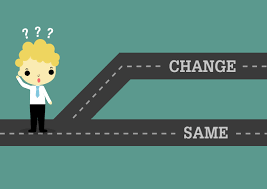People deceive themselves when they assume that they always make free and deliberate choices. In fact, a range of studies have found that at least 43% of our behaviors — and in some cases far more — occur not by conscious thought and intention, but automatically, habitually, and reactively.
When success has been elusive, meaningful improvement is often the result of changing one’s behaviors. Yet, too often, we keep banging away, continuing to do what we have already been doing.
It’s important to understand that what we think about a situation will determine our attitude toward it; our attitude prompts us to behave in a certain way; and our behavior dictates the results we get (our level of success).
Thoughts ➡️ Attitude ➡️ Behaviors ➡️ Results
Don’t short-change your personal or professional development by over-emphasizing aspects such as gaining new skills and knowledge, at the expense of intentional focus on behavior change.
Unfortunately, changing one’s habits and behaviors can be much more complex and difficult than we think, because doing so typically entails:
✔️ accepting that our current ways are not appropriate
✔️ stepping outside of our comfort zone to try new things
✔️ experimentation / trial & error until new ways are identified and practiced
✔️ having perseverance until improvement is sustainable
… all of which can be disconcerting and uncomfortable.
When things aren’t going as desired, don’t merely focus on WHAT isn’t working, but on HOW your behaviors need to change to help achieve better results.

